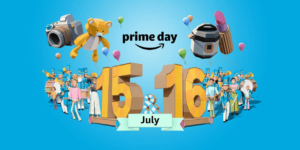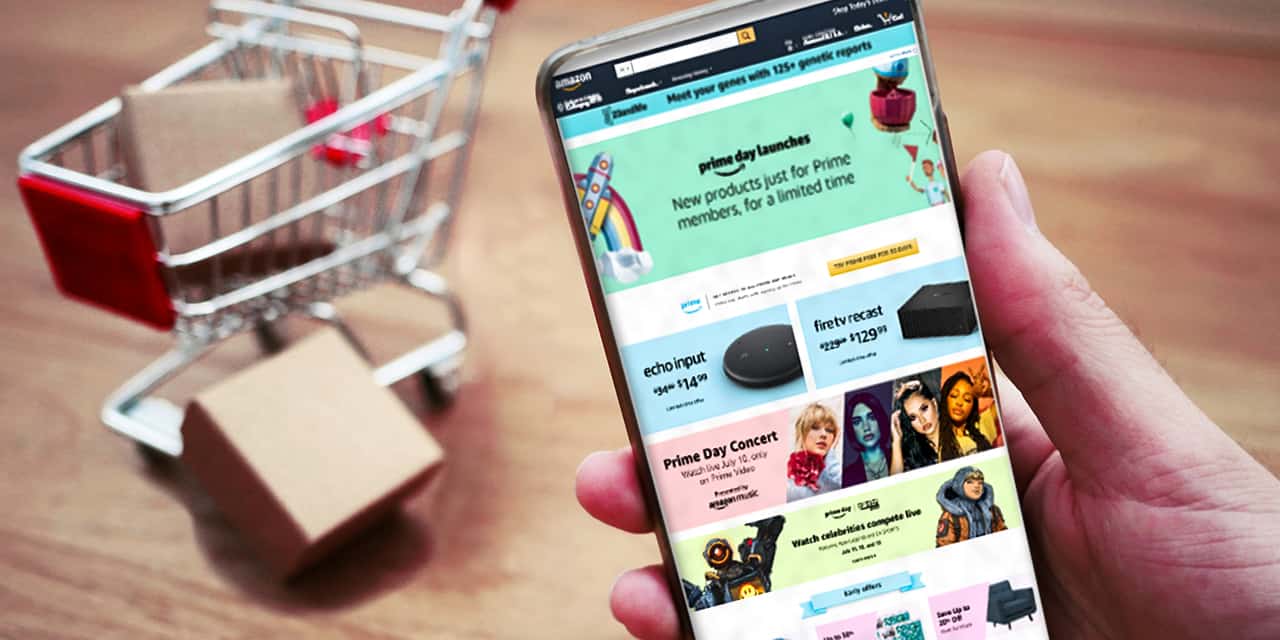Amazon Prime Day 2019 – Predictions & Best Practices
Amazon Prime Day 2019 is just two weeks away and if past Prime Days are anything to go by then it will be a huge day for eCommerce sellers around the world.
Whilst Amazon is undoubtedly the big winner, with over 50% of Amazon orders fulfilled by third-party sellers the opportunity is huge for smaller independent sellers to really boost those summer sales numbers.
Our friends over at Feedvisor have put together a handy infographic outlining some facts from Prime Day 2018 to help make this point.
Making the most of Prime Day 2019
 Because of this opportunity, we reached out to Amazon experts Feedvisor to see if they could share some of their insight with us.
Because of this opportunity, we reached out to Amazon experts Feedvisor to see if they could share some of their insight with us.
Feedvisor President and COO Dani Nadel has put together a handy list of best practices for sellers to capitalise on this Prime Day;
Don’t experiment, optimize instead
Sellers should not use Prime Day as a time to launch new products or test new ad campaigns. Instead, they should optimize the most popular items in their inventory to drive the highest possible sales volume and establish their advertising strategy in advance of the shopping event.
According to Amazon, advertisers have historically seen a 5x lift in sales for Sponsored ad campaigns on Prime Day. They should ensure all product descriptions and images are in line with Amazon’s best practices, and incorporate relevant keywords whenever possible to help drive visibility through search.
Tap into the loyalty of Prime members
Prime members make up Amazon’s most loyal and valuable audience. In fact, 89 percent of the consumers who make a purchase on Amazon daily or almost daily are Prime members.
Sellers should focus on promoting their Prime-eligible items so that Prime members who filter for these specific items can easily find their products — an important strategy since nearly half of Prime members (48 percent) plan to make a purchase during Prime Day 2019.
Align ad campaigns with Prime Day business objectives
Amazon’s expanded advertising suite provides a myriad of ad opportunities and targeting options, so sellers should build their campaigns with a particular business objective in mind.
If accelerating sales is their top priority, sellers can optimize campaigns for clicks, conversions, advertising cost of sales (ACoS), and new-to-brand metrics. If generating brand awareness is their goal, they should focus on ad formats that favor impressions such as product display ads.
Make real-time ad adjustments
Sellers can adjust their advertising bids to be more competitive throughout Prime Day. Doing so will help them gain and maintain visibility in prominent ad placements during peak traffic times and capture a lift in impressions. After seeing how ads perform, sellers can also add negative keywords to prevent irrelevant traffic and wasted ad spend.
Leverage the post-Prime Day halo effect

According to Amazon, category search volumes were higher in the 14 days post-Prime Day 2018 compared to the 14 days before. Both product searches and sales volumes will be elevated for days and even weeks past the official Prime Day period, so sellers can also run cost effective ad campaigns during this time period immediately following the holiday to re-engage with their existing audience and drive upsells and cross-sells.
We want to thank Dani from Feedvisor for sharing these great tips and insights with us.
Are you expecting a big Prime Day 2019 for your business? Will you be utilising some of the tips above? Let us know in the comments below or over in our Facebook Group.
If you liked this article and would like to engage with other small business entrepreneurs selling on marketplaces, join our [the_ad id=”41560″ inline =”1″]. You can also find us on [the_ad id=”41579″ inline =”1″], [the_ad id=”41573″ inline =”1″], [the_ad id=”41575″ inline =”1″], and [the_ad id=”41577″ inline =”1″] or sign up for our newsletter below.
SIGN UP. BE INSPIRED. GROW YOUR BUSINESS.
We do not sell your information. You can unsubscribe at any time.
Dave Furness
Dave is a Co-Founder of eSeller365. For over 10 years he has been involved with eCommerce with a particular interest in the marketplaces and the huge opportunities available for sellers when utilizing a multi-channel strategy. After a year of being the UK’s youngest eCommerce consultant, he built an education platform called UnderstandingE that showed the world how to utilize Magento as the “Third Generation of Multi-Channel software”.
Dave has also created a YouTube channel dedicated to entrepreneurship and eCommerce as well as a podcast dedicated to mental health awareness. When Dave isn’t working his main interests include learning and playing Chess, researching the Crypto and NFT space, and trying to find the nearest beach.

